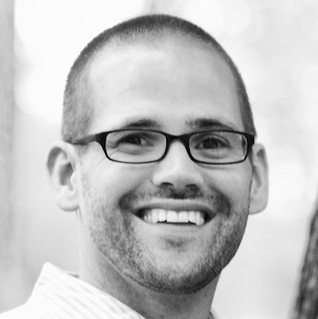Temporary Community: Friend or Foe?
Over the past few years I’ve noticed a lot of conversations going on about community. Many argue that the rise of social media, online chats, text messages, and gaming has left the human population starved for real human community. This seems to make sense to me, the more we isolate ourselves and the more buffers we put in place between our selves and other people the more hungry we will grow for actual deep meaningful connections with people. We were made to be in community to interact with, touch, and see other people.
It’s been my experience that this deep hunger for meaningful community is especially strong in young people and in twenty-somethings. We see this need present itself when we go on missions trips or on summer camp type experiences. Camp, or a trip, creates a unique type of community feel. People are open, vulnerable, and more willing to “go deep” there then they are at home. That’s what makes those experiences powerful. The temporary community created is like cold water for a thirsty soul. We see young people “come out of their shells” and become re-connected with others.
At the same time these temporary community experiences can be some what “dangerous”. We can all think of people who become a “new-person” at camp but then once they get home they slip right back into the cave they were living in. That’s because the temporary community experience was too disconnected from reality. It was too extra-ordinary and too separate from the permanent system of everyday life.
We can also see these temporary community experiences serving as a drug for people. They go from experience to experience getting the next fix – meanwhile their day-to-day life is still a mess. They come alive when they’re away from home but they have no idea how to live when they get back. This can also create an strange entitlement mentality, where the temporary community experience must deliver the “high” the participant needs and if it doesn’t the person is left empty and angry. In their selfishness they grow bitter towards the temporary community and hold anger in their heart that this experience, “wasn’t as good as last time.” Organizations like camps then work furiously to make sure they deliver the new, exciting, more powerful narcotic to fulfill the craving inside people.
It is crucial that when we provide temporary community experiences we use them to help people have a healthier more sustainable permanent community. The question on a mission trip, or during camp, should constantly be about how this effects the permanent community. We provide temporary community experiences because we want people to come away from the grind of everyday life and grow. The temporary community gives them space to think, be themselves, and be vulnerable. But that is not the end, the end is using that experience to keep everyday life from becoming “the grind” they need to escape from.
So the questions to ask are: “Is your camp, trip, retreat, or DNow experience about helping people live healthier every day?” “Are you focused on using the temporary experience to better the permanent community?” “Are you creating a drug addiction in people or are you strategic in moving people from the temporary high to thriving in the rigor of everyday life?”
Shameless plug: At LeaderTreks we have lots of great resources to help you make the most of your experiences! www.leadertreks.org/store
About the Author
John Vandervelde
John Vandervelde serves as the Executive Pastor of Glen Ellyn Bible Church in the Western Suburbs of Chicago. He and his wife, Kari, have been married for 15 years and have five children. When he’s not at the church or chasing his kids around, John enjoys running, biking, and competing in triathlons.




